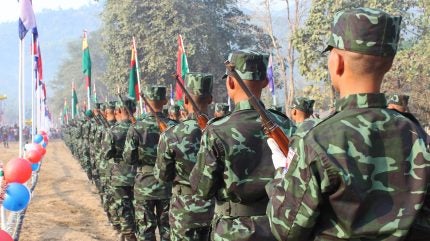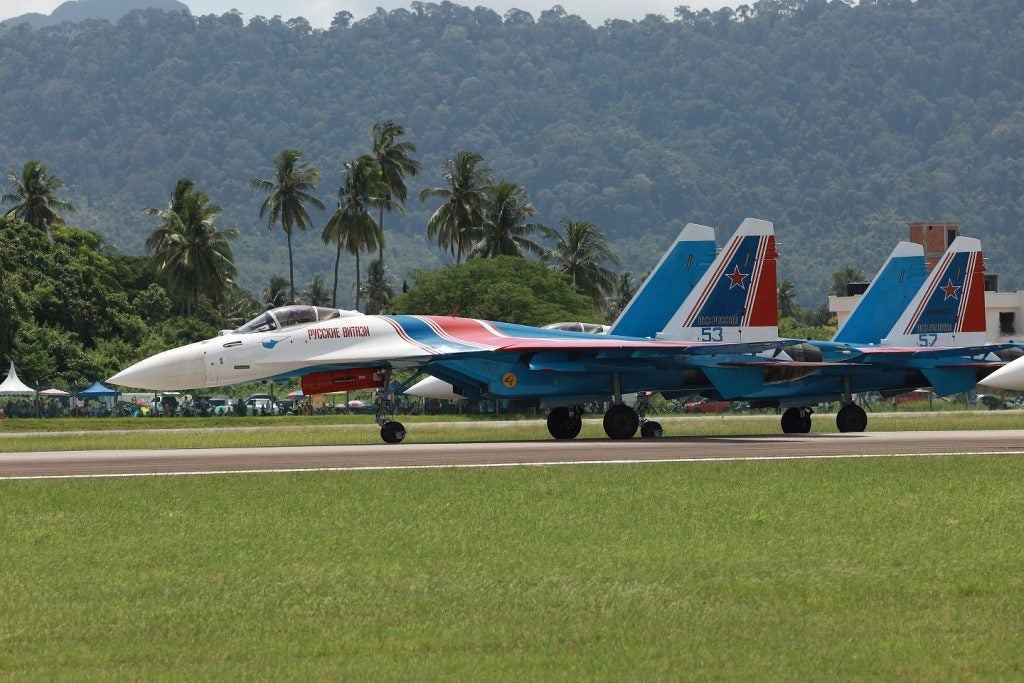
As Myanmar’s military airstrikes on civilian targets surge, evidence reveals continuing shipments of aviation fuel to the embargoed nation, facilitated by multi-national supply routes, which underline the challenge of enforcing global sanctions.
On 4 April, 2024, the UN Human Rights Council adopted a consensus resolution on Myanmar. The resolution includes a call for all states to “refrain, in accordance with applicable national procedures and international norms and standards, from the export, sale or transfer of jet fuel, surveillance goods and technologies and less-lethal weapons, including ‘dual-use’ items, when they assess that there are reasonable grounds to suspect that such goods, technologies or weapons might be used to violate or abuse human rights, including in the context of assemblies.”
Recent investigations by Amnesty International claim to have unveiled an ongoing delivery of aviation fuel to Myanmar, exposing the international supply chains that persist in defiance of sanctions. This development raises concerns about the effectiveness of current embargo measures and the complicity of global players in potentially enabling military aggression.
Complex supply chains and evasive tactics
Amnesty International’s findings indicate that at least three shipments of aviation fuel reached Myanmar between January and June 2024. The Myanmar military, employing evasive tactics, has managed to obscure the origins of these shipments. The fuel was purchased and resold multiple times, and transported through various countries, with stops in Vietnam, China, and the United Arab Emirates before reaching Myanmar.
One particular vessel, the Chinese-owned oil tanker HUITONG78 has been identified in these operations, transporting fuel from Vietnam to Myanmar in January and February 2024. The same tanker was likely engaged in a third shipment from the UAE in May 2024. Satellite imagery and vessel-tracking data allowed the tracing of the tanker’s movements, corroborating Amnesty’s claims.
Wilson Jones, an aerospace, defence, and security analyst for GlobalData, highlights the significance of the continued import of aviation fuel for the Myanmar military’s operational capabilities.
“Aviation fuel imports are fairly important to the Myanmar military, as air power is a major advantage they hold over the rebel factions. Without fuel, munitions, and replacement parts, their air force would become unable to fight, which would degrade the junta’s fighting power,” Jones said.
Involvement of international companies
The Amnesty investigation implicates international entities in this supply chain. Singapore-based Sahara Energy International Pte Ltd and the Chinese state-owned CNOOC Trading (Singapore) Pte Ltd were identified in the transactions. Moreover, the storage facilities involved, including those operated by Royal Vopak in Singapore, played roles in temporarily holding the fuel before it was rerouted to Myanmar.
These companies, while often emphasising their adherence to legal and regulatory frameworks, find themselves embroiled in a controversy due to the military’s control over Myanmar’s fuel terminals.
Airforce Technology contacted the companies mentioned in this article for comment regarding Amnesty International’s allegations but had yet to receive a response at the time of publication.
GlobalData’s Myanmar defence market intelligence highlights that the UN has called for the boycott of more than 140 Myanmar companies linked to the military and urged world leaders to impose sanctions on organisations and companies linked to Myanmar’s military.
Escalating military airstrikes
The backdrop to these shipments is an increase in military airstrikes on civilian targets in Myanmar. According to the UN Special Rapporteur on the situation of human rights in Myanmar, military airstrikes against civilian targets have increased five-fold in the first half of 2024. Notable among these was an attack on a monastery in Ah Kyi Pan Pa Lon village, Magway region, which resulted in 12 civilian deaths and numerous injuries.
According to GlobalData’s intelligence on the Myanmar defence market, between 2021 and 2026, military fixed-wing aircraft is expected to rank as the leading sector, with a value of $1bn. One such key procurement deal is with Russia for the procurement of six Su-30 fighter jets.

In January 2021, Russia also secured an agreement with Myanmar’s defence ministry to supply Pantsir-S1 air defence systems. Alongside the Pantsir-S1 systems, Myanmar also received Orlan-10E UAVs, radar stations, and self-propelled anti-aircraft missile and gun systems. This military cooperation extends a longstanding partnership that has seen Myanmar procure and maintain Russian defence equipment.
In a separate development within the same year, Myanmar commissioned the UMS Minye Kyaw Htin, a Chinese Type 35B Ming-class submarine.
While it remains challenging to ascertain the direct usage of the imported fuel, the military’s control over fuel terminals, such as the former Puma Energy terminal now operated by the Shoon Energy group, signals a probability of its application in military operations.
Recent reports indicate intensified fighting in Lashio, the largest town in Shan State, Myanmar, since 3 July. The Myanmar National Democratic Alliance Army (MNDAA) and allied forces allegedly attacked the town, believed to be a military headquarters for the State Administration Council (SAC), leading to casualties and infrastructural damage.
The conflict, resulting in at least 15 deaths and numerous injuries, has caused thousands to flee, with many stranded on roads. Myanmar Witness has geolocated damage and verified footage of people fleeing.
Agnes Callamard, secretary general of Amnesty International, claimed: “Shipping and fuel companies have no option but to withdraw from that supply chain completely. It’s high time that companies put an end to these shipments.”
The disclosure of ongoing aviation fuel shipments to Myanmar, despite global sanctions, poses challenges to the enforcement of international regulations designed to curb military aggression.



